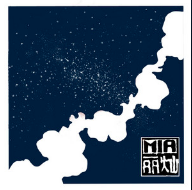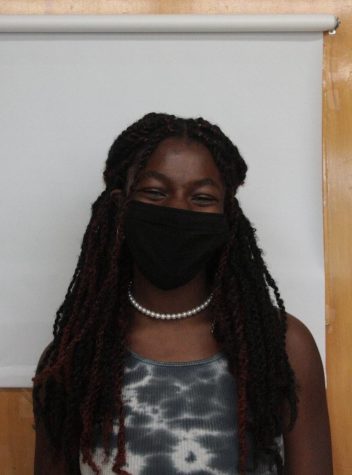Never Alone

Never Alone artwork
May 14, 2021
On Tuesday, March 16, a shooting that took place in Atlanta Georgia, left 8 people killed, most of whom were of Asian descent. The shooter, Rober Aatron Long, claimed that his actions were not racially motivated, though considering the timing and place of the violence, many would beg to differ.
This shooting took place amid ongoing attacks that the Asian community had continued to face throughout the U.S. Many of which were rooted in the xenophobia that continued to be perpetuated toward the Asian community during the rise of the COVID-19 pandemic.
Ida B. Wells senior, Mia Sedory, decided to make a song. “What’s interesting is,” Sedory said, “I didn’t think about doing it for anyone else, I didn’t think anyone would actually see it. I sat down and I wrote from 11 am to 3:00 pm, I don’t even know if I came down to eat, I just had to process it.”
Music was the best way that Sedory felt she could speak her truth, and the truth of many others in the Asian community. The song not only speaks to the fetishization, hate, and violence that the community faces, but it also gave voice to the experiences of the Black community as well.
The song starts off with a recording of multiple Asian hate crime coverage over the news, and then goes to the song’s first verse. The spoken word song includes lyrics such as, “ In Atlanta, Chinese women have been shot dead”. There is also a reference to Black hate and police brutality as well, “Black women have been killed in their own beds.”
“It was helpful for me to take my fears and anxieties and put them into the song,” said Mia. Music has been a place for Mia to tell her story, “I’ve always written. I’ve been writing since 3rd grade, making up little stories. It’s always been there for me, and has helped me process things.”
The song has a lot of symbolic meaning, for example, the cover is of a night sky. “There’s a quote,” Sedory said, “‘Good friends, you can’t always see them, but they’re always there.’ I wanted to think of the community. We can’t always see each other. Graphically we are far away, especially in isolation, but we’re always there in the sky, still trying to send light to each other.”
Never Alone received lots of acclaim from the Ida B. Wells student population. The album cover could be seen across Instagram and Snapchat stories, congratulating Mia on using her platform to send this message. “The overall message is similar to the title,” Sedory said. “I want to make sure that people know that, no matter what they’re going through, they are never alone.”
Melody, a 14 years old student, has experienced their fair share of hateful experiences as an Asian-American student. “At the time, people weren’t supposed to wear masks at school yet, which, why? It’s a public health concern,” Melody said. “I was wearing a mask, and the adults tried to tell me, ‘no, you shouldn’t wear that, it won’t help you’ even though my grandma, who is a medical professional, told me to.”
This racial targeting isn’t only limited to adults, but kids as well. “There were a bunch of kids calling me “bat eater”, and continued to associate me with COVID-19, calling me the ‘China virus.’ I think they thought I was the actual personification of COVID-19.”
“I wasn’t scared. I was so angry,” Melody said. “I wanted to protect my own community.”
Jonel Mondero, a junior at Ida B. Wells, felt similar emotions. “The first time I heard about the shooting that happened, I was filled with different emotions, anger, stress,” he said. “I couldn’t handle it, that could’ve happened to anyone in my family.”
The rise in Asian hate may come as a surprise to some, but not all. Xenophobia towards Asian Americans has been rooted in American history as far back as the Chinese Exclusion Act, which was published in 1882, as a means to exclude Chinese people from becoming U.S citizens. Racism towards Asian and Asian presenting people has always been present, but has never been quick to reach full acknowledgment in the mainstream media until COVID.
This rise in Asian hate crimes has left a lot of people with the question of what to do, and how to deal with this news. This was especially difficult considering the state of our world, and the fact that there is a lot less access to resources for activism.
Many members of the Asian community have taken to their social media platforms to educate their audience on how to be an ally during this time.
“The model minority myth, that’s a huge reason why people don’t believe that Asians are actually oppressed. A lot of the youth nowadays have been stepping up, which is fantastic….I feel like Asian hate is so normalized because of that model minority myth,” Mondero said.


